September 18, 2022
Welcome back to my Precepts series—inspired by meaningful thoughts, insights, and discoveries I have during each week, and intentionally designed to help make your life just a little bit better. Enjoy!
You can find the Precepts series in its entirety here.
Precept 52: Music
It's no secret that the human body and brain's response to music is both profound and complex. Music can be used to drive armies to battle, shift tribal dancers into a passionate fury, spark athletes and fitness enthusiasts to crush a difficult workout, soothe a troubled and stressed mind, lull a baby to sleep, carry tiny packets of information in both lyrics and sound waves, and much more. The extent to which invisible sound frequencies interact with so many elements of our cells and organs is something that modern scientific research has only begun to tap into. Perhaps this fact that we humans are – like it or not – music and sound-tuned creatures is why in nearly every religion, music plays a key role in worship, prayer, devotion, celebration, and more, and also why key religious texts such as the Bible describe music in the heavens, music sung by angels, music appreciated by God, and music as a very likely significant part of our eternal existence in glory forevermore after our physical bodies have died.
Yet, if God can use music for good, Satan can certainly use music for evil. Because music is an information carrier to our brains, and can quite easily implant or influence language, moods, memories, and decisions with its lyrics, beats, and tones, when we are playing with music, we are playing with fire. You've no doubt experienced the difference in the way you feel when you experience reverent orchestral holiness versus screeching death metal. Never underestimate the power of music to shift a human to either peace or violence, productivity or laziness, and good or evil.
In the fascinating book entitled The Father & His Family (definitely a recommended read), author E.W. Kenyon describes Satan's propensity to use “passion music” and “passion dance” (yes, that is quite conceringly the same “ecstatic dance” you see lauded in plant medicine and new age circles with increasing popularity) to stir people to sin. Please note as you read below that I think the author was speaking in the context of his time, which did indeed have troubling racist tendencies. However: I would say that we can apply his “outdated” vernacular to our modern day version of a Las Vegas Night Club, strip club, etc. See what I mean?
Kenyon notes,
“It is a significant fact that music today holds a large
place in all the brothels, dance-houses, theaters, and operas
and that music is one of the attractive features of sin today.
Satan has not ceased to be a musician; neither has he
ceased to lead great choruses and oratorios.
…He evidently loves the esthetic and beautiful; his fall
did not take that from him. Whenever he has an opportunity he uses these to
destroy and wreck the spirits; of men….
…He has given to us the ballroom with its fascinating
body-gripping passion music, imported to us from the South
Sea Islands, from Cuba, and the Negroes of the South, music
that throbs and pulsates with a passion that stirs all that is
worst in fallen man….
…It is no wonder that 90 percent of the girls today in the
houses of ill-fame in this country went there through the public
dance hall….
…There is nothing that so un-mans a man and a woman
and throws them open to the God of Lust as this subtle
passion music of today. Satan has reached his highest point of fascination in
this subtle, dangerous type of music.
…He could only reach a few through the so-called
classical music, but passion music is based on one of nature's
perverted fundamental laws…”
So now let me ask you: how is the style of music you listen to frequently affecting your own mind, body, and spirit? Do you consider the lyrics? Do you consider what the music does or does not motivate you to do? Do you analyze what you would be doing in the same environment or room if the music were different? Just like any other form of entertainment, music is not neutral, and I will say it again: when you are playing with music, you are playing with fire. Fire can be used to cook, heat, nourish, and help, or can be used to burn, purge, destroy, and harm. Take your music choices seriously.
Precept 53: Rigidity
I have written previously about control, particularly control in excess, often associated with “OCD-like tendencies.” Control in deficiency creates chaos, disorder, and a general inability to get much done; control in excess lends itself to stress, self-harm, and unnecessary micromanaging; but control in moderation lends itself to higher amounts of productivity and temperance.
I often think of control the way I think of “rigidity.” A tree that is too rigid and stiff will snap like a dry twig when subjected to heavy wind. A tree that is not rigid enough will bend and droop under the weight of its own branches. But a tree with perfect rigidity will both adapt and gracefully respond to subtle variations in wind patterns, without snapping and without sagging.
The same can be said for humans. Let's take your calendar, schedule, and daily routine, for example. If you are hyper-rigid to a schedule, and if you possess a distinct goal or purpose for which that rigidity serves you, then great. For example, perhaps you have signed up for a triathlon and set yourself a strict schedule of a set number of swims, bike rides, and runs each week. What gets measured gets managed, and with a reasonable rigidity to your triathlon training schedule, you are far more likely to cross the finish line with a smile on your face.
But now, let's say the triathlon is over. However, you, as a creature of habit, continue to maintain your hypnotic trance of swimming, cycling, and running each week – now not because you are signed up for a race, but rather because you have engrained a psychological pattern and near addiction to those particular activities. Suddenly, without a specific purpose and goal, you have become a slave to your rigidity! This is all-too-common.
So now step back and analyze the way that you are living each day and the activities you are prioritizing each day – be it exercise, some kind of work, a particular form of entertainment, etc. Next, ask yourself if your prioritization of these activities is just left over from previous goals, is an unnecessary habit, is no longer serving you and your greater purpose, and perhaps instead reflects a selfish, deep, driven desire to be in control. If so, then you have become a slave to your rigidity. You are simply checking that box because it makes you feel good, with no other good reason to do it. Of course, to do this, you must know your ikigai, your plan de vida and your purpose. Here's where to start.
Precept 54: Recreation
And now, something brief.
Recreation = Re-creation
That's it for this week! If you have questions, comments, or feedback below, please leave your thoughts. I read them all!


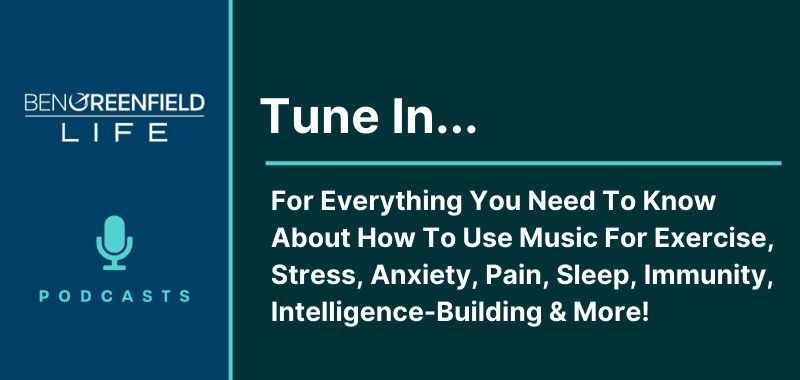


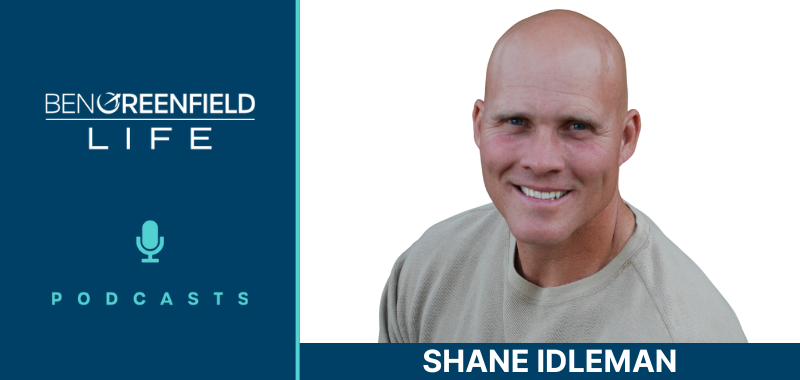



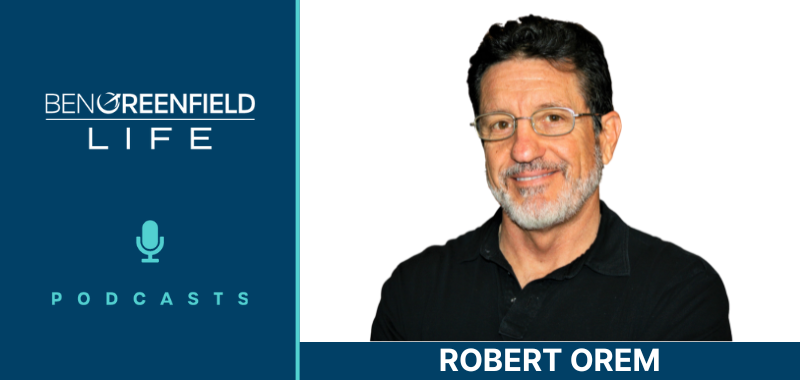
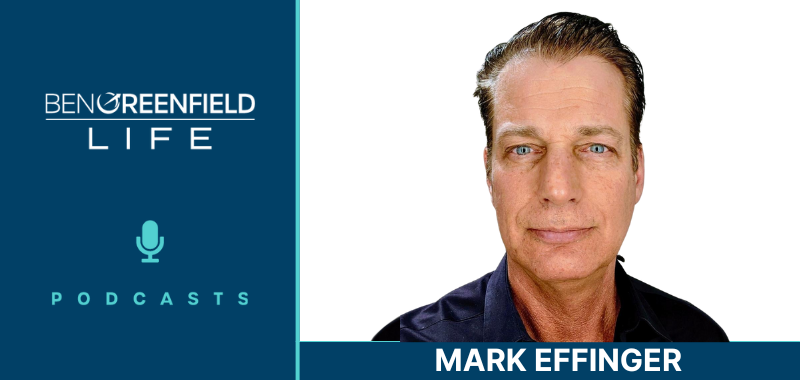
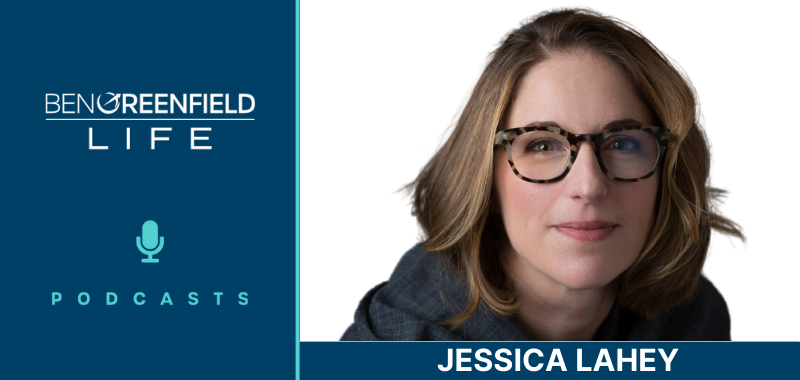

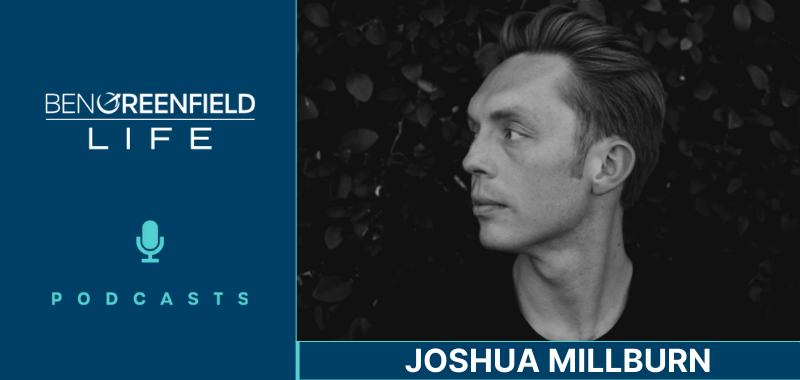
Peter Metcalf: Please provide data for your statement “walrus who skin penguins alive for the sport of it.” Walruses live in the northern hemisphere, and penguins live in the southern hemisphere so the two species do not cross paths.
Lisa, I concur. (got side tracked…saw this earlier today)
As I have aged I can now see how the world has moved in flow of the world (by he who has control – or believes he does…). Sadly we often do not think, we just ‘do’ (especially when younger), and normally without knowing why. I do not believe critical thinking is taught much…I don’t recall getting much of it…, and as with many before me, we just opt to be like ‘the world’ — afraid to stand apart even when we knew it is wrong or not good for us, and especially when frightened by ridicule or persecution. In hindsight I can see how I went through days/weeks/years unaware of the demonic influence all around me, and I am so thankful to now have eyes and ears to see and hear. It is truly a blessing. But, do the masses remain clueless..? There is the saying, we are only as strong as our weakest link.
Thank you Ben for the courage to speak out, in a good and insightful way.; sharing growth as it comes. It is a blessing.
From the Epoch Times today: Words of Wisdom: “The invariable mark of wisdom is to see the miraculous in the common.” RALPH WALDO EMERSON
It’s crazy how in alignment our thought patterns are, especially over the course of a week. Earlier this week meditating upon a verse in Deuteronomy, the spirit blessed me with this context on music and wanted to share. It’s one of the final devotions for my upcoming book Live Consciously and wanted to share it with you. I appreciate what you do Ben! Keep shining your light! With love, Derek. 🙏🏻
God Chose A Song
“Now write down this song and teach it to the Israelites and have them sing it, so that it may be a witness for me against them. So Moses wrote down this song that day and taught it to the Israelites. And Moses recited the words of this song from beginning to end.
Deuteronomy 19, 22, 30
Of all mediums, when it came time for Moses to educate people for the rest of history, and keep them reminded of the ways of God, God chose a song. Not a novel, not a poem, not a short story, not even a parable, God chose a song. We may ask, “why a song?” and that’s where I would like to chime in on this topic. Music and songs are special in that they transcend time, space, language and break down all physical barriers. They speak on an energetic and vibrational level that communicates with the soul. When we hear music and songs, it moves us in a way that we begin to dance, cheer, chant, and become filled with the spirit. Music and songs resonate with the soul in a way that the body physically reacts, creating a somatic response within the biological body. If we look at the cells of the body, they function at certain frequencies and as they function at these frequencies, optimal frequencies, we call that health. Musically speaking its biological harmony and symphony within the body. Things like cancer are actually cells in the body that essentially grow “out of tune”. Therefore, music is a powerful part of health. In addition to health, and singing songs, songs have a way of being committed to memory that transcends all other forms of language. We can remember songs from childhood in old age. Our minds can always remember the music. I have a feeling it has something to do with the imprint it has at a cellular level but is certainly something we commit to memory very well as humans. Music and songs have a way of “programming” our minds, bodies, and spirits. Have you ever noticed on the radio or TV they call commercials paid programming?” Therefore, music, jingles, songs, and all audible format in the realm of music are very powerful, and it’s important that we choose the songs we sing, the songs we listen to, and the music of our lives wisely. We want to program our minds, bodies, and spirits just as people in Moses’ day with music and songs that remind us of our divine nature as co-creators and image-bearers of God on earth. We want to program our minds, bodies, and spirits with songs of positivity that are uplifting to the soul, joyous to the heart, and harmonizing to the body. We want to constantly be instructing our bodies on a cellular level to remain in a great symphony. It affects the way we see the world and physically affects the makeup of our lives. I could go on forever about tuning, frequency, and so on but just know that the fruits of the spirit are all words with a vibrational frequency of the highest form. With love being 528 Hz a frequency that has been shown to heal the body. Songs and music are powerful, that’s why I feel God chose a song.
I am grateful for those who are brave enough to sing songs that reflect the image of God. With all that we have in human discovery, these are the people, and these are the songs that can truly change the world.
Father God, I am honored to serve You. Father God, bless me with songs that bring about the fruits of the spirit to radiate joy within the lives of those on earth. Father God, I am honored to serve You. Father God, may my life harmonize in a great Symphony of music to radiate outward as music to the world. I love You dearly my most holy father. Amen.
Music is the quickest way to heal the world. That I am sure. For songs transcend all space, time, language and human blockage.
First impression was this is just old school fearmongering. Christ tells us not to fear.
I’m a classical musician, with something of an understanding of classical music history. Others who specialize in music history know much more of the details.
All classical music is about the experience of tension of separation, whether in Love, or love, or separation from God. Classical music has developed over the ages in complexity and in uncountable instances, exquisitely subtle.
What concerns me most is not the popular music to which people dance all close together with their hands in the air, and in joy, or with their arms around another as in waltzes, or linking fingers or holding hands in a circle dance from Greece, when the gender or sexual orientation is irrelevant, nor the music of 50’s slow dancing. Human life requires, for health, well being, a context for flirting. Music provides one such context by giving people inspiration to move, that is, dance. What I aver in my life is music that expresses the dynamic of tension between power and power, that is, the dynamic of another being’s unique expression or manifestation of “power,” and the tension of unwilling assimilation or subjugation to another, and the experience of assimilating, subjugating, or simply eliminating another who objects to our own manifestation of power, especially when both are into “power,” and the expression is devoid of any sort of love, or joy, and critically, when such music (or ballet, or literature, movie, or art of any sort) is not intended to highlight the goodness or love, or Love of another being, group, or part of the artwork, such as a movement of a symphony.
There are a lot of “wicked” or mean people on Earth, and maybe even animals (walrus who skin penguins alive for the sport of it). I hasten to add, we’re all here for a reason, even when that reason is unfathomable. When music is extremely well crafted, manifesting great intellect and talent, and is created for no other purpose than to awaken fear or magnify the ego’s experience of fear or of being in control, then I, being a musician who by intention have become acutely sensitive to all music, and choosing a different path, hear it immediately and perhaps comment on it to someone I’m with so we both are alert to the composer or player’s intention, and are neither entrapped nor do we succumb, not so much to the music so much as our own ego. Self-monitoring is integrated with self-knowledge and usually leads to wherever the apparent intention is strongest. (But recall that unusual or even common circumstances of life may awaken us at any time to a more compassionate reality or perception of Love – which shows, after all, the soul’s intention.) We’re all on our own blessed path, n’est pas?
I would not assume that the words or publicly stated or expressed intention of someone or an organization, or a restaurant (as the instance I alluded to to above), are trustworthy, yet don’t become immersed in that other feature of the ego, fear or misapprehension due one’s own paucity of love. Just be aware of subtleties of inner and outer conflict as may be expressed less overtly through music, poetry, speech, all the arts, and the eyes. Behavior and actions are more obvious, and more in the realm of “ethics” or morality, which as I see it, is more a matter of turning off one’s heart so one can make decisions and choices from the brain, or mere habit dependent on external circumstances. Less true joy, if you ask me. So, this is the realm of classical music – the most subtle expression of yearning, tension within and without, aka inner conflict. Forget “angst,” which is an overused term more appropriate for expressing inner conflict that brings a person to the edge of sanity or breaks through into creatively seeking a higher expression (not solution). Artistic creation is therapy and if the intention is public presentation, then it is “art.”
Less subtle is the music I heard accompanying a video game. It was such a such a pure synthesis of the notion of power as to be more an intelligent expression of the result of power of the simplest, that is, least complex consciousness (say, an amoeba or plankton) over another. It was absolutely barren. And seeing that some kids are being exposed to this…Well, we all have significant roles to play here on Earth. As Shakespeare wrote into one of his characters’ lines, “All the world’s a stage.” We all need our supporting and unsupportive, even obstructive fellow actors, indeed. Absolutely. What would King Arthur have done with his life had he not lived in a time of gross inequality based on physical strength and power of one individual over another?
Following is a brief overview and explanation of classical music if anyone is interested. Sooner than later, I give the strongest recommendation to my students that they gain a good sense of the origins and history of music by listening to the earliest Western music, and if they can, trace it even from the Middle East, the birthplace people who emigrated from the Garden of Eden, and birth place of Western music and many instruments, the remainder being born in Africa, which was so kind to the earliest development of humanity, and a number of other places before making their way to Europe where they were refined for the expressive purposes of that area. By having this sense of musical history, one can hear then the radical departures from the norm by the masters, and be more moved by those departures.
The classical music we listen to is generally fine, although it’s plain to me that one composer in his Gloria, a stand alone work not associated with the musical setting of the entire mass, which was actually a kind of latecomer in music history, was farting at God. Kind of harmless, mildly amusing, because the music isn’t compelling.
Classical music grew from the confluence and then integration of three musical paths.
A. Folk music, which with lyrics, was concerned with Nature in and of itself, romantic love, both requited but also unrequited for various reasons, such as distance from a traveling traveling, or Nature, or or just wishing the beloved would “notice me,” and more. Folk music as dance was just the spirit of flirting, as is all dance with an element of actual joy. I do not refer to the macho Turkish line dance and its music. There’s a well known painting (well known, from my perspective because it is featured on the record, CD jacket, and youtube video, painted by someone (I’m making an assumption here) who lived during the life time of the composer Micahel Praetorius, whose music is being played:
https://youtu.be/E20GIPuip5o?list=OLAK5uy_nu6Pf8R2rdubXekK-66VYemXwj9IaMHtw
The painting depicts a scenario of flirting through dancing to music, and a man’s attempt to get a woman to agree to join him..
.Although we don’t hear music from the musicians in the painting, a collection of dances composed by Michael Praetorius, called “Terpsichore” (rhymes with “hickory”) can be recreated so we know very well what could be the mood of a celebration of life, or the harvest, or a wedding, etc. expressed through dance music.
Then there is the more restrained version of the same music, played as it would have been interpreted in a nobleman’s court, where appearances count most, and sex was seemingly hidden from painters – just my guess, not being an art historian. But it’s easy to hear in early classical music that courtly dances were restrained compared to the folk dances from which the classical composers’ forms were derived. In this performance (link below) of the same music, notice that not one musician is looking at another when the photo was snapped of musicians doing their best from a serious, scholarly perspective. You will also hear that the interpretation – all of it – is far more restrained, as it might have been or “surely was” when played in court.
https://www.youtube.com/watch?v=4JWYIY3icUg&list=RD4JWYIY3icUg&start_radio=1
The waltzes of Europe are where the nobility and upper classes, and middle classes too, if they had the wherewithal to buy or stitch the extravagant garments, took off in entertainment, rather than movies and the more suggestive modern forms of music (rock). I can tell you, waltzing to a good waltz with a good dancer can be head spinning and a real joy! Whether or not a coupling or deeper relationship results is a private matter, at times adjudicated and even determined by one’s parents, relatives, station in society, and other practical considerations – such as a spouse, sickness, wealth, the question of “where and when,” etc.
As in the painting of the first example, which unfortunately is obscured by the title of the album, every one of us is descended from rogues and flirts and all manner of sexual expressions, power plays, political conveniences, romantic passionate love, and even spiritual aspirants of different sorts and in different settings and with different intentions. That’s just a dip into the pool of human experience. The bottom line is that song and dance has been the occasion of introductions, choosing a mate and rejecting other suitors, from the beginning of time.
B. Classical music was also integrated with church singing in Latin (plainsong aka chant, Gregorian chant) prior to Martin Luther’s rebellion against that religious convention. The music of Bach, some of the highest spiritual expressions in musical history, was objected to when he improvised in some churches. Yet all music, still, is an expression imbued with Love or love, or sex, of physical closeness, physical separation, and/or the emotions associated with each condition – dance. This is life – until we get to the music created for expressing and heightening the experience of violence and results of violence, which is, if you believe evil is real, concerns me most. (Evil in my view is simply on one side of the inconceivably complex, diverse, broad, four dimensional, that is, temporary, ever changing spectrum of what we might call human decency and ethics, but I consider merely maturation of the human soul, which makes it easier to realize we are all on our own unique path, all equal, with different roles that support the spiritual maturation of others and each other. “It’s all good” never had a more profound meaning.
C. As I suggested, classical music also shows a major influence of the need for courtly restraint in public. Recall so many stories in fairy tales, myths, legends, literature, and in fact (Princess Elizabeth – but not to the extreme protrayed in the movie), and at least one fiction movie “The Titanic,” where courtly people or the aristocracy went “underground” to experience the freedom of expression of relatively impoverished cultures – in the old days, the peasants, i.e., farmers, who were close enough to Nature to incorporate it in their music, and whose dance music reflected the physical harshness of work and of living under adverse circumstances. In the modern era, visitations to black ghettos brought jazz, with its non-committal final chords and harmonies, distinguished from the finality of classical music, in conjunction with the recording industry, brought jazz to mainstream music lovers – which is to say, those of relatively greater wealth and ease of life. And as in the beginnings of classical music, George Gershwin, a classical composer, incorporated folk music, in this case jazz idioms, if not forms, into his music. In the end, courtly, aristocratic restraint meant classical music evolved into an extraordinarily subtle art form, still expressing, but with more nuance, all the intensely passionate and spiritual exigencies and choices of life.
As a native of Puerto Rico, down from Cuba – this quote totally stopped me from continuing the author’s train of thought. His correlation to music from the African and Caribbean areas of the world to prostitution and dance halls was so racist, misogynistic and the view of a majority male view point, that it made the point that you were trying to make totally irreverent. The beat of salsa, Afro-Cuban, tribal, bachata, reggaeton, gospel and less staid musical styles being attributed to “sin” and “bad” actions is so wrong I can’t even articulate it! My ability to spell correctly was even affected! How about the men that visit these ” dance halls”. What “music” sends them there??
If the music moves you and your spirit, and you cry in ecstasy to “God” or your higher power is the “music” labeled “good” or “bad”. Classical vs. metal, Elvis vs. Bing Crosby – perception vs. reality. Bad people do bad things because they are “bad” not because they listened to a heavy metal band or “Choirs of Angels singing or Leonard Cohen singing “Halleluja”! Check your sources better to apply to the greater audience so your message of Health is not overshadowed by the wrong choices of literature you pick. If you are looking for a world audience you need to have a world view.
Evelyn, my ultra long comment above may interest you if you read it to the end.
Also, as a musician, I can tell you from my own experience, and is the basis for my continuing as a musician when there are other options, I completely disagree with you about personal transformation resulting from music. Whether music causes transformations in society, as some believe Wagner’s music did, or merely express the collective unconscious of society’s hidden evolution, is for some a question. Not for me.
Music is a tremendous force for transformation of individuals and society. This was recognized by the Russian autocrat Stalin, who laid down the law regarding what classical music could and could not express, so as to keep control of the common people. Same with Mao in the “Cultural Revolution.” The movie “The Red Violin” clearly illustrates that if you believe it is based in historical truth, as I believe. (I’m not a historian, but know something of it.) Music’s power to transform consciousness is also why people put it in the background – to enhance their well being, or to enhance whatever state of consciousness to which they are addicted or to which they aspire. Part of the reason people attend classical music concerts is to be inspired by the music. The other part is to be inspired by the musicians themselves – total dedication to achieve what they present.
Hi Ben, my fellow Sagittarian. This is a great question I too have asked myself many times.
I asked a very famous spiritually enlightened Gemini guitarist for his opinion.
He told me that when you are dealing with questionable music, you have to ensure that you don’t connect to the questionable mood, but to the performance of it rather than the meaning. For example, try to connect to the wonderful energy of performing and the vibrations of the strings on your body, instead of connecting to any questionable/dark emotions/lyrics of the composition.
But regardless, I think special care must be given when listening to music in the background (whilst studying, working, working out, etc), when our minds are consciously focused on something else, but the music is still potentially affecting our aura and energy bodies. Not sure if there is a way to become immune to it, the way powerfully meditating yogis can be completely out of touch with anything five-sensory distractions going on around them.
As a Sagittarian, I’m sure you understand our planetary influence to have multiple interests and thus varied music tastes. I think that’s what challenges me because I don’t want to suppress experience, but also don’t want them to harm me. Hard to discern whether my varied music tastes are more about having an authentic spiritual experience, authenticity vs. temptation.
What do you think?
“He has given to us the ballroom with its fascinating, gripping passion music, imported to us from the South Sea Islands, from Cuba, and the Negroes of the South, music that throbs and pulsates with a passion that stirs all that is worst in fallen man…” Yikes. This language is dated at best, racist at worst. The point about being mindful of the ways your music choices affect your physiology is well taken, yet the implication that dark-skin equates with “sinful” forms of expression and an innate propensity for lust sends chills up my spine. It’s taken straight from the playbook of historical marginalization and subjugation.. Maybe be more careful to contextualice the way you use your source material.
I agree with you. Those quotes sound very dated and racist and make me feel uncomfortable. Just because you like dance music or rock or rhythm and blue does not make you a bad person. I’m over 50 and remember when when a certain organization was horrified by certain lyrics. Folks have brains and it is up to them to use them.
I think the author was speaking in the context of his time, which did indeed have troubling racist tendencies. However…I would say that we can apply his “outdated” vernacular to our modern day version of a Vegas Night Club, strip clubs, etc. See what I mean?
Sorry but I feel you read more into this than was presented and did you notice, it was taken from the material it was written in….
So true about music that motivates and moves people (good and bad).
Love your precepts Ben.